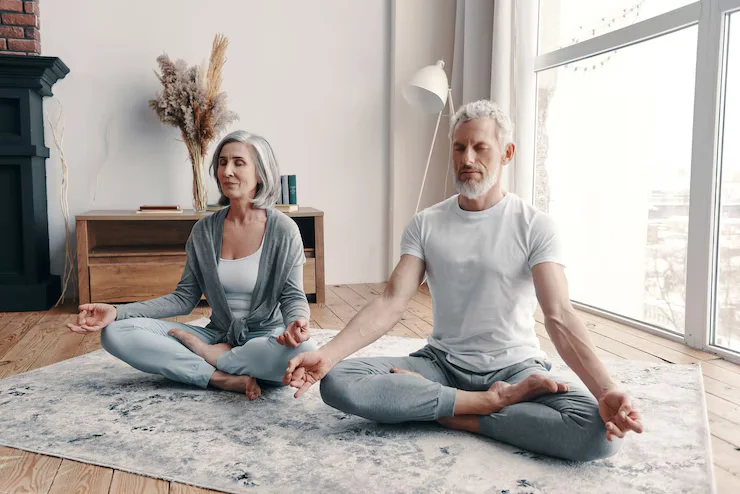People often focus on the mental and physical health challenges that come with the aging process. They dismiss the age and wisdom that come with getting older. Mindfulness is beneficial for older adults because it has a positive impact on their physical and emotional well-being. Their cognitive function improves and they socialize more.
Mindfulness may be used to manage a person’s chronic pain while reducing their stress. Mental clarity improves when a person practices mindfulness, which is why this practice is becoming more common in independent living communities. Furthermore, individuals who engage in this practice often experience a sense of well-being. Focusing on the present while removing all judgment and distraction allows people of all ages to thrive.
Physical and Emotional Benefits
Mindfulness helps improve sleep quality. Countless seniors struggle with sleep, and mindfulness can help reduce their risk of insomnia. They can handle chronic illnesses better and keep their pain under control. Their stress levels decrease, and they see a boost in their mood. Mindfulness improves a person’s memory while reducing the effects of loneliness and depression.
Practicing Mindfulness
Seniors who practice mindfulness find they are more in tune with their thoughts and feelings. They experience physical sensations in the moment. Doing so allows them to focus on the positive rather than dwelling on the negative. They feel gratitude and contentment.
The Centers for Disease Control and Prevention conducted a clinical trial. Researchers found that mindfulness-based stress reduction (MBSR) benefits seniors struggling with chronic pain. Seniors also benefit from chair yoga and structured programs that enhance flexibility and physical function, allowing them to engage in more activities.
Practicing mindfulness allows seniors to deepen connections with others. They feel less isolated and lonely. Additionally, they can manage conflicts and strengthen their relationships. Mindfulness techniques and activities can be tailored to meet the needs of seniors.
Mindfulness-Based Cognitive Therapy
Older adults took part in an eight-week mindfulness’s-based cognitive therapy study. Researchers found that participants witnessed a significant improvement in their stress and anxiety levels. Furthermore, they were less depressed. Seniors with cognitive decline have a higher quality of life when they use mindfulness techniques and activities.
Mindfulness and Exercise
Mindfulness’s should be an essential part of any workout routine, regardless of a person’s age. It allows them to remain present during the workout and listen to their body. Doing so helps reduce injuries, as the person is more aware of their body and what they are feeling.
Mindfulness Techniques
Seniors should choose mindfulness techniques they enjoy. Breathing exercises are a good starting point for many older adults. Chair yoga is another option seniors might want to consider. This physical activity helps seniors with mobility challenges and health issues stay active, improving their physical and mental well-being. An instructor within the independent living community may lead guided meditation sessions.
For those who feel called to deepen their knowledge and support others on their wellness journey, becoming a breathwork facilitator offers a meaningful opportunity to guide others in these practices while enriching their own mindfulness experience.
Grounding and relaxing meditation are two options an independent living community might offer. Some seniors engage in heart rate variability training. Older adults may also participate in clinical trials to learn about alternative methods and techniques that could be used.
Mindfulness’s offers numerous benefits for seniors and people of all ages. Those with chronic illnesses often find that their health improves, and participants experience a decrease in blood pressure, as well as a reduction in inflammation levels. Every older adult should try mindfulness’s techniques to see how they benefit their lives.







